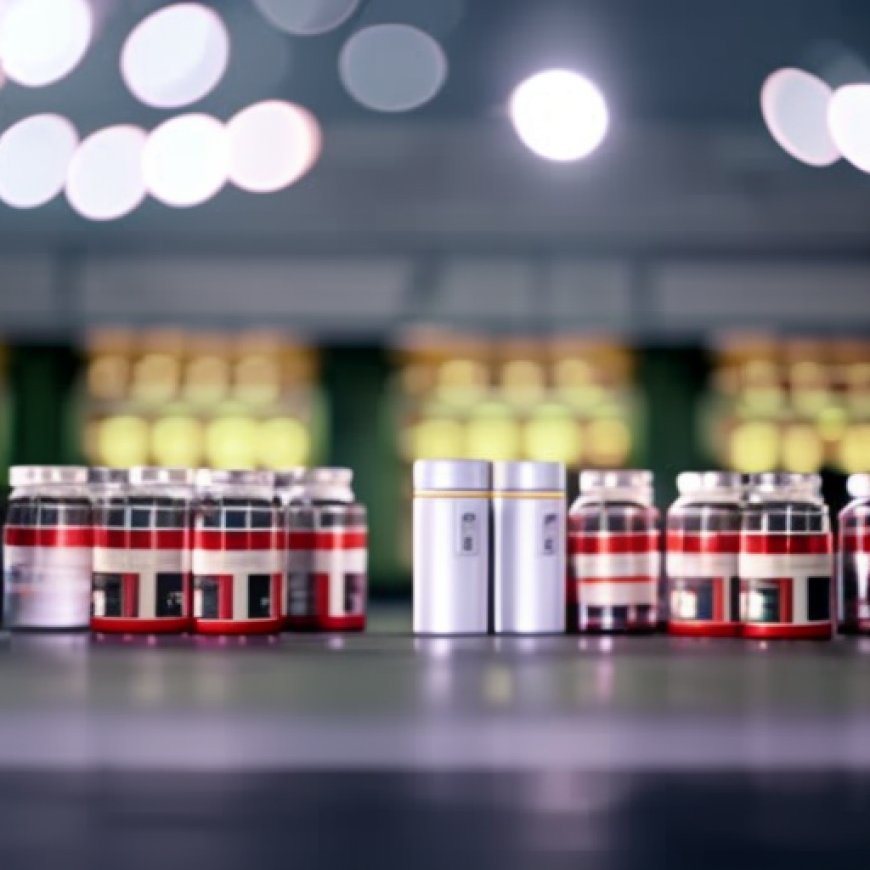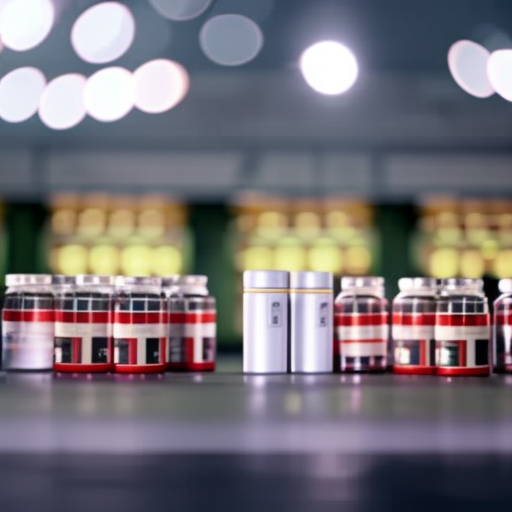Venezuela’s Political Unrest Has Made Drug Trafficking, Money Laundering, and Other Crimes Easier
Venezuela's Political Unrest Has Made Drug Trafficking, Money ... Government Accountability Office


Political Unrest and Transnational Crime in Venezuela
Political unrest, financial collapse, and corruption in Venezuela have created an environment that allows transnational criminal organizations to operate unchecked. Their illegal activities include illicit finance (like money laundering), as well as trafficking of people, drugs, and arms.
In 2019, the U.S. ceased to recognize Nicolás Maduro as Venezuela’s president and suspended embassy operations in Venezuela. Federal agencies have also taken steps to prevent illegal activities from affecting the U.S.
The Maduro Regime and Transnational Crime Organizations
U.S. agencies have indicated that the Maduro regime tolerates transnational criminal organizations’ operations within Venezuela, including some groups that the U.S. has designated as terrorist organizations. Corrupt Venezuelans have participated in and profited from these illicit activities.
Illicit Finance
Both the departments of State and Treasury have reported that Venezuela is susceptible to illicit financial activities. Furthermore, between 2017 and 2022, State consistently determined that Venezuela is a major money laundering country.
Illicit financial flows related to Venezuela include proceeds from the sale of commodities, such as oil and gold, and drug trafficking.
- Oil: remains a major source of income for Venezuela and has been a mechanism for fraud and corruption, according to Treasury officials. Venezuelan oil continues to be exported to other countries, such as China.
- Illicitly-mined gold: from Venezuela is another source of illicit profit. Before entering international markets, its origins are disguised in the Caribbean, Latin America, the Middle East, and Africa, according to U.S.-government–funded research. Venezuelan gold is subsequently exported to countries in Europe, the Middle East, and East Asia.
- Drug trafficking: State has described Venezuela as a preferred drug trafficking route, predominately for moving cocaine to global markets. In April we reported to Congress about how Colombian cocaine is trafficked through Venezuela to the U.S., Europe, and Africa. Corrupt Venezuelans are collaborating with drug traffickers, according to the Commander of the U.S. Southern Command. These activities undermine U.S. counternarcotics goals in the region.
Following the Money…U.S. Efforts to Disrupt the Flow of Illegal Funds
Criminal organizations, corrupt individuals in the Maduro regime, and others have taken steps to disguise the origins of their illegal activities and commodities. For example, they use shell companies and family or business contacts acting as proxies to hide their assets. Venezuelan elites also continue to use complex transnational mechanisms to move, store, and trade their wealth abroad, according to research funded by the State Department.
U.S. agencies have taken steps to disrupt these flows. State and Treasury have provided assistance to partner countries in the region to build their capacity to disrupt criminal activity in general and, to some extent, financial crimes in particular. However, Treasury officials noted that the volume of illicit financial flows is overwhelming for many partners in the region.
Treasury’s Financial Crimes Enforcement Network has issued advisories on corruption in Venezuela. Treasury also has taken action against more than 300 individuals and entities related to Venezuela—blocking their assets and generally prohibiting U.S. businesses and financial institutions from dealing with them. The Department of Justice has charged at least 35 people with money-laundering-related crimes connected to Venezuela, securing convictions for some of them.
Sustainable Development Goals (SDGs)
- Goal 16: Peace, Justice, and Strong Institutions – Addressing political unrest, financial collapse, and corruption in Venezuela to create a stable environment.
- Goal 8: Decent Work and Economic Growth – Combating illicit finance and promoting legal economic activities in Venezuela.
- Goal 3: Good Health and Well-being – Disrupting drug trafficking routes to protect global health and prevent the spread of illegal drugs.
- Goal 17: Partnerships for the Goals – Collaborating with partner countries to build their capacity to disrupt criminal activity and illicit financial flows.
Learn more about our work on Venezuela by reading our new report.
SDGs, Targets, and Indicators Analysis
1. Which SDGs are addressed or connected to the issues highlighted in the article?
- SDG 16: Peace, Justice, and Strong Institutions
- SDG 8: Decent Work and Economic Growth
- SDG 5: Gender Equality
- SDG 3: Good Health and Well-being
- SDG 10: Reduced Inequalities
- SDG 17: Partnerships for the Goals
The issues highlighted in the article, such as political unrest, financial collapse, corruption, transnational criminal activities, illicit finance, trafficking of people, drugs, and arms, are connected to various Sustainable Development Goals.
2. What specific targets under those SDGs can be identified based on the article’s content?
- SDG 16.4: By 2030, significantly reduce illicit financial and arms flows, strengthen the recovery and return of stolen assets, and combat all forms of organized crime.
- SDG 8.7: Take immediate and effective measures to eradicate forced labor, end modern slavery and human trafficking, and secure the prohibition and elimination of the worst forms of child labor.
- SDG 5.2: Eliminate all forms of violence against all women and girls in the public and private spheres, including trafficking and sexual and other types of exploitation.
- SDG 3.3: By 2030, end the epidemics of AIDS, tuberculosis, malaria, and neglected tropical diseases and combat hepatitis, water-borne diseases, and other communicable diseases.
- SDG 10.7: Facilitate orderly, safe, regular, and responsible migration and mobility of people, including through the implementation of planned and well-managed migration policies.
- SDG 17.1: Strengthen domestic resource mobilization, including through international support to developing countries, to improve domestic capacity for tax and other revenue collection.
Based on the article’s content, these specific targets are relevant to the issues discussed.
3. Are there any indicators mentioned or implied in the article that can be used to measure progress towards the identified targets?
- Indicator for SDG 16.4: Number of seized and confiscated assets related to organized crime.
- Indicator for SDG 8.7: Number of prosecutions and convictions for human trafficking and forced labor.
- Indicator for SDG 5.2: Number of reported cases of violence against women and girls, including trafficking and sexual exploitation.
- Indicator for SDG 3.3: Incidence rate of HIV, tuberculosis, malaria, and other communicable diseases.
- Indicator for SDG 10.7: Number of migrants with access to regular migration channels and legal protection.
- Indicator for SDG 17.1: Tax revenue as a percentage of GDP.
These indicators can be used to measure progress towards the identified targets based on the information provided in the article.
SDGs, Targets, and Indicators Table
| SDGs | Targets | Indicators |
|---|---|---|
| SDG 16: Peace, Justice, and Strong Institutions | Target 16.4: By 2030, significantly reduce illicit financial and arms flows, strengthen the recovery and return of stolen assets, and combat all forms of organized crime. | Number of seized and confiscated assets related to organized crime. |
| SDG 8: Decent Work and Economic Growth | Target 8.7: Take immediate and effective measures to eradicate forced labor, end modern slavery and human trafficking, and secure the prohibition and elimination of the worst forms of child labor. | Number of prosecutions and convictions for human trafficking and forced labor. |
| SDG 5: Gender Equality | Target 5.2: Eliminate all forms of violence against all women and girls in the public and private spheres, including trafficking and sexual and other types of exploitation. | Number of reported cases of violence against women and girls, including trafficking and sexual exploitation. |
| SDG 3: Good Health and Well-being | Target 3.3: By 2030, end the epidemics of AIDS, tuberculosis, malaria, and neglected tropical diseases and combat hepatitis, water-borne diseases, and other communicable diseases. | Incidence rate of HIV, tuberculosis, malaria, and other communicable diseases. |
| SDG 10: Reduced Inequalities | Target 10.7: Facilitate orderly, safe, regular, and responsible migration and mobility of people, including through the implementation of planned and well-managed migration policies. | Number of migrants with access to regular migration channels and legal protection. |
| SDG 17: Partnerships for the Goals | Target 17.1: Strengthen domestic resource mobilization, including through international support to developing countries, to improve domestic capacity for tax and other revenue collection. | Tax revenue as a percentage of GDP. |
Behold! This splendid article springs forth from the wellspring of knowledge, shaped by a wondrous proprietary AI technology that delved into a vast ocean of data, illuminating the path towards the Sustainable Development Goals. Remember that all rights are reserved by SDG Investors LLC, empowering us to champion progress together.
Source: gao.gov

Join us, as fellow seekers of change, on a transformative journey at https://sdgtalks.ai/welcome, where you can become a member and actively contribute to shaping a brighter future.







